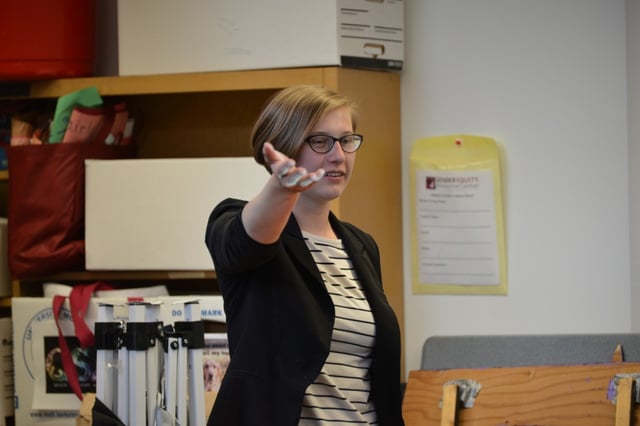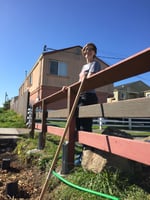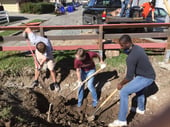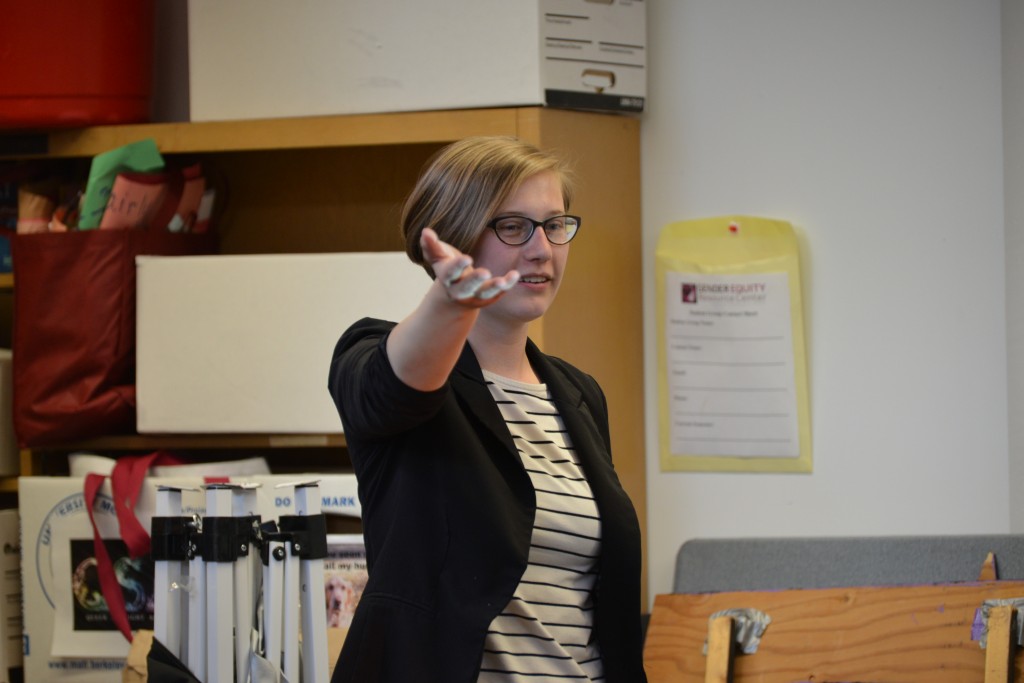Point Scholar Alexa Groenke, a second year engineering student at the University of California, Berkeley, has participated in project with a local environmental justice organization working to improve storm water infrastructure in low-income neighborhoods and was an RA for an 11-day program meant to prepare incoming freshman who are underrepresented in engineering to succeed in Berkeley Engineering. Below she tells us how engineering can create a better world for the entire LGBTQ+ community.

What does queer engineering look like? As a queer woman, and a second-year civil engineering student, my future revolves around this question. I chose to study civil engineering because I saw the need for technical professionals that are also focused on creating justice and equity in the world. Too often, it seems like engineers are focused almost exclusively on numbers, without stopping to think about how those numbers affect people, especially how they affect marginalized people. My home is in the LGBTQ+ community, so naturally, I want to ensure my future work in civil engineering benefits and brings justice to the LGBTQ+ community. So, what does it mean to engineer buildings, bridges, and public spaces with the LGBTQ+ community in mind?
 A disproportionate number of LGBTQ+ youth and adults experience homelessness. While civil engineering cannot solve homelessness, it does play a role in what the experience of homelessness is like. An increasing number of public spaces are designed specifically to make life harder for homeless individuals. Engineers and designers have thought of dozens of ways to make benches more uncomfortable and more difficult for people to lie down on. The next time you are walking around, look for benches with divided seating, or funky, ‘artsy’ shapes- those are not just design choices, they are political choices meant to force people away. Cities and businesses opt to use these benches because they see people experiencing homelessness as nuisances and not as people.
A disproportionate number of LGBTQ+ youth and adults experience homelessness. While civil engineering cannot solve homelessness, it does play a role in what the experience of homelessness is like. An increasing number of public spaces are designed specifically to make life harder for homeless individuals. Engineers and designers have thought of dozens of ways to make benches more uncomfortable and more difficult for people to lie down on. The next time you are walking around, look for benches with divided seating, or funky, ‘artsy’ shapes- those are not just design choices, they are political choices meant to force people away. Cities and businesses opt to use these benches because they see people experiencing homelessness as nuisances and not as people.
Queer engineering means creating public spaces with homeless people in mind; designing buildings, subway stations, and parks that have places to rest, and take cover from the elements. Queer engineering means fighting to keep anti-homeless design from the projects you work on, even if that means stepping out of your strict job description. Queer engineering means thinking and caring more about the people that rely on your engineering projects to meet their daily needs.
Another problem facing the LBGTQ+ community is violence. LGBTQ+ individuals, especially trans women of color, face a lot of violence in public spaces. Queer engineering means asking, how can we design city spaces like parks and roadways to be safer? This is an especially difficult question because queer and trans people of color are so often seen as a danger to society, even as they face a disproportional amount of violence. Tools created with the goal of increasing safety in public spaces, like security cameras and apps to report crimes on public transit, often fail to keep people on the margin safe, and are even used as tools to further police their existence in public spaces.
Queer engineering means thinking of novel solutions to make streets safer for everyone, and thinking critically about who is seen as a threat in public spaces. Queer engineering means going beyond just engineering, and thinking about problems from a political and social viewpoint as well.
 Alexa working to improve water drainage in low-income communities.
Alexa working to improve water drainage in low-income communities.
Finally, there will be no justice for the LGBTQ+ community until there is justice for everyone in the LGBTQ+ community, including disabled and low-income folks. There are so many examples of civil engineering projects have that cut off access for marginalized people, from subway stations without elevator access, to bridges with clearance too low for buses (and thus, low-income bus riders) to travel on. While public spaces have become more accessible, there are still so many spaces designed to serve the able-bodied car owner, while the needs of others are just an afterthought. Queer engineering means thinking about all the ways that people are marginalized in public spaces. Queer engineering means doing things differently, and building things that serve all people’s needs, not just powerful people’s needs.
Engineering can’t be the solution to any of the problems facing the LGBTQ+ community, but if it’s not part of the solution, then it’s part of the problem. When engineers don’t think specifically about the implications of their work on marginalized communities, they end up reinforcing a flawed and oppressive status quo. Civil engineers literally create the world around us: that’s a lot of power. I’m excited to use that power as one of many tools to continue my social justice advocacy, and hopefully make the world a little friendlier to the LGBTQ+ community and beyond.
This post was written by Point Scholar Alexa Groenke
 Alexa grew up in Bloomington, Minnesota. In 2011, she began volunteering with Minnesotans United for All Families, a group created to defeat a proposed amendment to the Minnesota Constitution that would prohibit same-sex marriage. After the successful defeat of the amendment in November 2012, Alexa continued to work with Minnesotans United on their successful campaign to pass a marriage equality bill in the state, taking on a leadership position in her region.
Alexa grew up in Bloomington, Minnesota. In 2011, she began volunteering with Minnesotans United for All Families, a group created to defeat a proposed amendment to the Minnesota Constitution that would prohibit same-sex marriage. After the successful defeat of the amendment in November 2012, Alexa continued to work with Minnesotans United on their successful campaign to pass a marriage equality bill in the state, taking on a leadership position in her region.
Read more about Alexa here.

